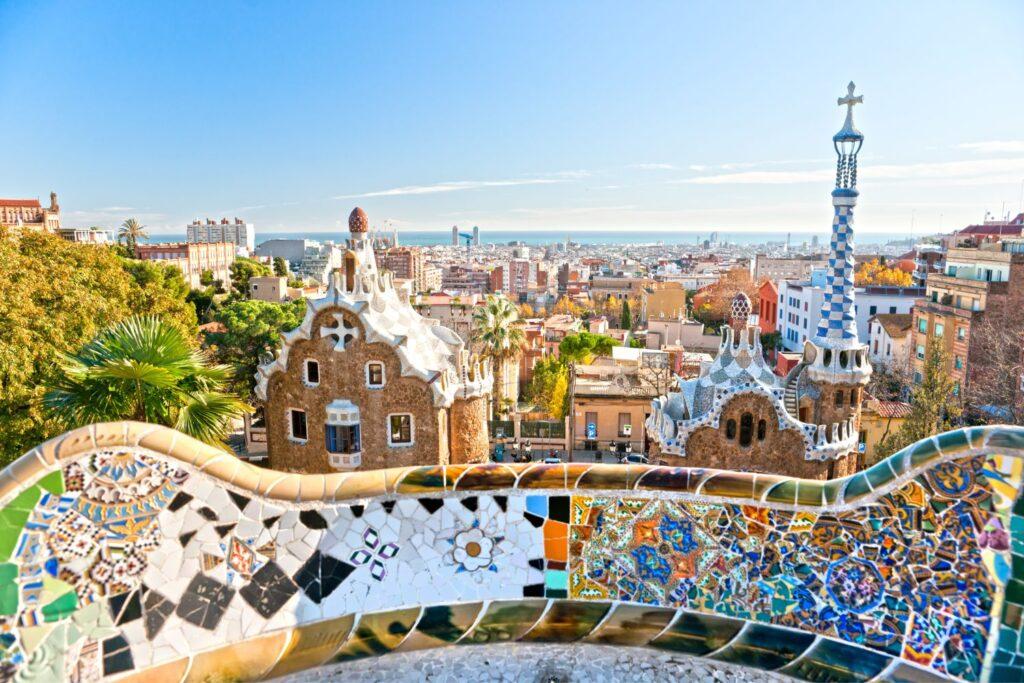Spain, with its vibrant culture, stunning landscapes, and warm climate, is an ideal destination for remote workers and digital nomads seeking a perfect blend of work and leisure.
As the trend of remote work continues to grow, more professionals are looking to relocate to cities that offer a high quality of life and excellent amenities.
Here, we explore the five best cities in Spain for remote workers, where you can enjoy a seamless work-life balance against the backdrop of Spain’s rich history and diverse traditions.
1. Barcelona

Known for its unique architecture, artistic flair, and lively atmosphere, Barcelona tops the list as one of the best cities for remote workers in Spain. The city offers an abundance of co-working spaces and a thriving community of digital nomads. It’s bustling with people from all over the world, so you’ll have no problem finding people with interests similar to yours.
Additionally, the stunning beaches are train rides away, and the world-class cuisine and a dynamic cultural scene make it an appealing destination for those seeking both professional opportunities and a high quality of life.
2. Valencia

Located on the Mediterranean coast, Valencia is a city that effortlessly blends contemporary elements with traditional charm. More and more expats are flocking to Valencia because of its more relaxed environment. It is a city that has beachy bohemian vibes.
Those engaged in remote work can enjoy a pleasant climate, picturesque beaches, and a lower cost of living compared to other major European cities. Moreover, Valencia’s commitment to innovation is evident in its growing technology sector, making it an attractive destination for those in the tech and creative industries.
3. Madrid

Madrid is the capital and economic hub of Spain. With its well-developed infrastructure, vibrant nightlife, beautiful parks, and extensive public transportation system, Madrid has grown into a bustling metropolis, providing numerous prospects for remote workers. You will never run out of things to do.
Madrid’s rich cultural heritage, including world-class museums and historic landmarks, adds a unique charm to the daily life of remote workers seeking a blend of professional and leisure pursuits.
4. Seville

For those desiring a more relaxed pace of life, Seville, located in the heart of Andalusia, is an excellent choice. Remote workers can benefit from the city’s affordable cost of living, warm climate, and rich cultural heritage.
Seville’s historic architecture, picturesque parks, and lively street life create an inspiring environment for remote professionals looking to escape the urban hustle without sacrificing convenience.
5. Malaga

Nestled on the Costa del Sol, Malaga is a city that effortlessly combines work and leisure against the backdrop of stunning beaches and a vibrant cultural scene.
With a growing community of remote workers, Malaga offers a variety of co-working spaces, along with a thriving entrepreneurial spirit. The city’s international airport provides easy access to other European destinations, making it an ideal base for those with a love for travel.
Spain’s Digital Nomad Visa

Spain’s Digital Nomad Visa is the country’s latest addition to its long list of different residence permits. The visa is for those who would like to work in Spain remotely. Meaning they must be working for companies or clients outside of Spain. If you are on a digital nomad visa, only 20% of your income can come from within Spain.
You can either be employed by an established company outside of Spain that allows you to work remotely or a freelancer with clients worldwide who also agree with remote work.
For both employed individuals and freelancers, the following criteria must be met:
- Companies and clients must be located outside of Spain
- Incomes from Spanish companies (or within Spain) should not exceed 20% of the total
- Demonstrate a minimum of 3 months of work or freelance collaboration with your companies/clients before applying
- Demonstrate an annual salary of €30,240 (equivalent to €2,520 per month)
- Provide evidence of either three years of relevant work experience or possess a degree from a reputable university, vocational training, or recognized business school
- No entry prohibition to Spain
- No criminal records in all countries where you have resided in the last five years
- A criminal records certificate valid for a minimum of 90 days, legalized and apostilled
- Acquire private health insurance with full coverage throughout Spain
- Submit a completed application form
- Pay the corresponding administrative fee
Understanding these prerequisites is crucial for determining eligibility and navigating the application process effectively. It will also provide clarity on potential tax benefits.
For instance, if you possess a digital nomad visa but function as a remote employee rather than a freelancer, you can apply for the Beckham Law and be subject to taxation as a non-resident. We recommend getting the help of a Spanish immigration lawyer, as going through Spanish bureaucracy can be a challenge.

So, what are you waiting for? With its diverse cities and regions, Spain offers remote workers a unique opportunity to blend their professional lives with the enchanting Spanish lifestyle.
Whether you prefer the cosmopolitan atmosphere of Barcelona, the cultural richness of Madrid, or the relaxed charm of Seville, Spain has a city to suit every remote worker’s preferences. Embrace the warmth of the Spanish sun, savour the exquisite cuisine, and immerse yourself in the rich tapestry of Spanish culture as you work and live in one of these five outstanding cities.


